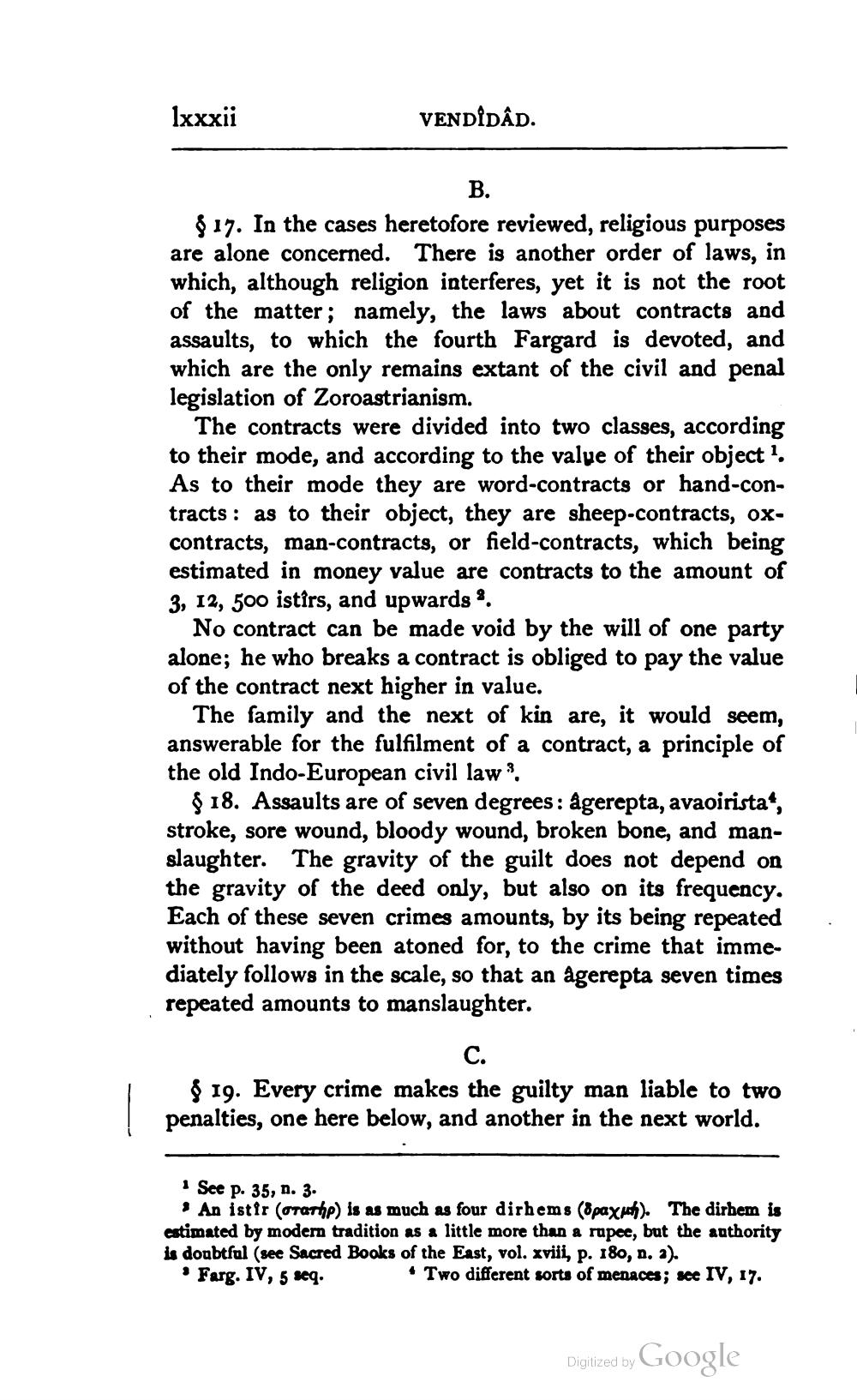________________
lxxxii
VENDÎDÂD.
B.
§ 17. In the cases heretofore reviewed, religious purposes are alone concerned. There is another order of laws, in which, although religion interferes, yet it is not the root of the matter; namely, the laws about contracts and assaults, to which the fourth Fargard is devoted, and which are the only remains extant of the civil and penal legislation of Zoroastrianism.
The contracts were divided into two classes, according to their mode, and according to the value of their object1. As to their mode they are word-contracts or hand-contracts as to their object, they are sheep-contracts, oxcontracts, man-contracts, or field-contracts, which being estimated in money value are contracts to the amount of 3, 12, 500 istîrs, and upwards 9.
No contract can be made void by the will of one party alone; he who breaks a contract is obliged to pay the value of the contract next higher in value.
The family and the next of kin are, it would seem, answerable for the fulfilment of a contract, a principle of the old Indo-European civil law3.
§ 18. Assaults are of seven degrees: âgerepta, avaoirista*, stroke, sore wound, bloody wound, broken bone, and manslaughter. The gravity of the guilt does not depend on the gravity of the deed only, but also on its frequency. Each of these seven crimes amounts, by its being repeated without having been atoned for, to the crime that immediately follows in the scale, so that an âgerepta seven times repeated amounts to manslaughter.
C.
§ 19. Every crime makes the guilty man liable to two penalties, one here below, and another in the next world.
1 See p. 35, n. 3.
An istir (orarhp) is as much as four dirhems (8paxh). The dirhem is estimated by modern tradition as a little more than a rupee, but the authority is doubtful (see Sacred Books of the East, vol. xviii, p. 180, n. a).
Farg. IV, 5 seq.
Two different sorts of menaces; see IV, 17.
Digitized by
Google




